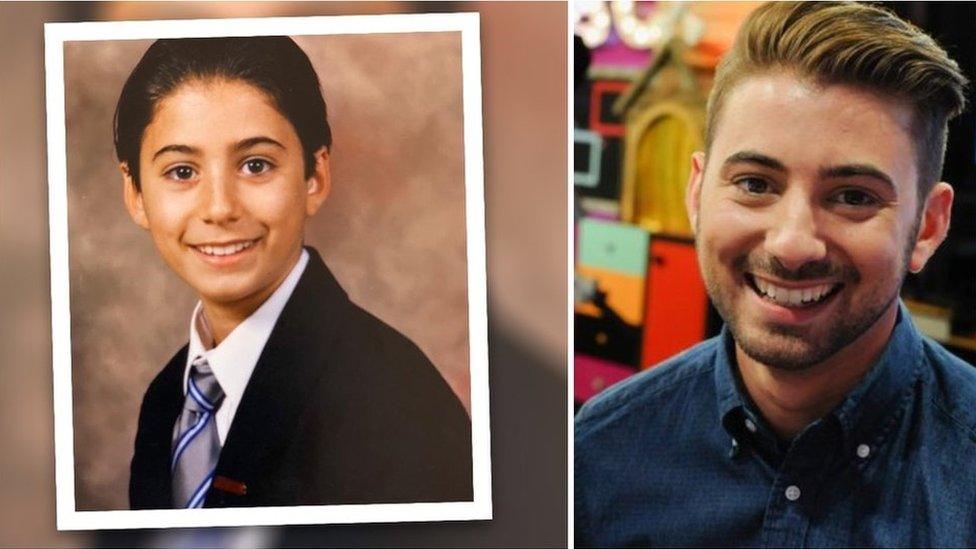Priti Patel: Who is she and why are people talking about her?
- Published
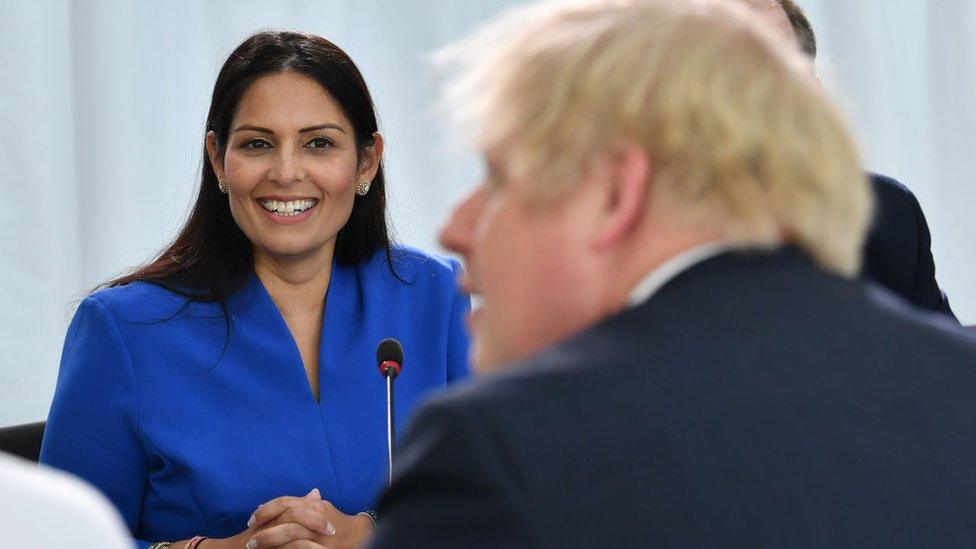
The Prime Minister, Boris Johnson has supported his Home Secretary Priti Patel after allegations of bullying and a report saying she had broken important rules over behaviour.
An investigation found that Ms Patel had "not met the high standards" for behaviour set out in something called the ministerial code, that's the set of rules government ministers have to follow.
However, despite calls for Priti Patel to lose her job, the prime minister said he had full confidence in his home secretary and "considers this matter now closed".
Ms Patel thanked the PM and apologised if her behaviour had upset people in the past.
Meanwhile, Boris Johnson's ethics advisor, who investigated Priti Patel, has quit his job following the prime minister's decision. The ethics advisor's job is to make sure that employees are behaving responsibly.
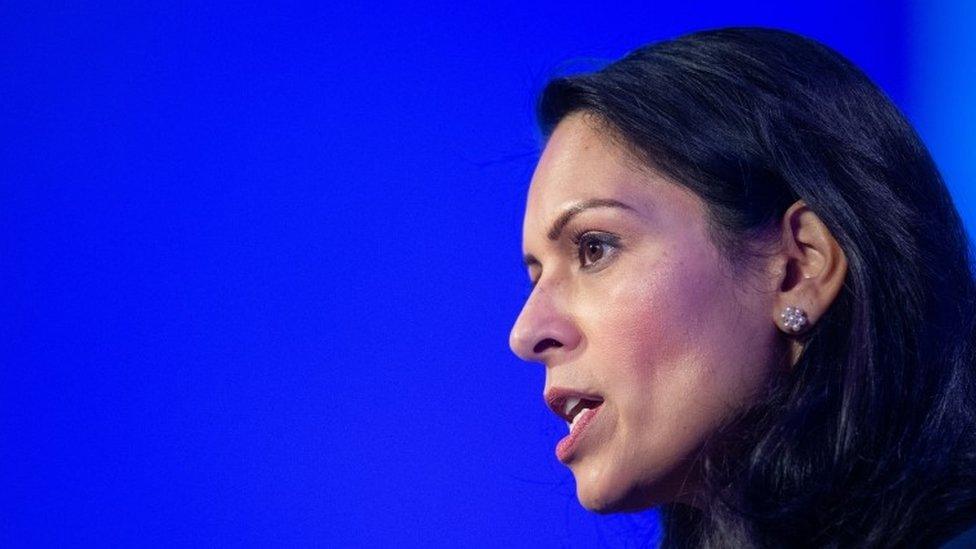
Who is Priti Patel?
Priti Patel has the job of home secretary, she is an important member of the government and is a member of Boris Johnson's cabinet - a group of the most senior ministers.
As home secretary, Priti Patel is responsible for key issues such as immigration and the police force.
What has happened?
In March, the prime minister asked for an investigation to "establish the facts" over whether the home secretary had behaved inappropriately. It followed allegations about Priti Patel during her time working in three government departments.
The investigation found that the home secretary had not treated civil servants with "consideration and respect".
It has never been my intention to cause upset to anyone. I am very grateful for the hard work of thousands of civil servants who help to deliver the government's agenda.
Civil servants and the ministerial code
Civil servants are not elected, they don't belong to political parties and instead work for government departments. They can stay in the job even if a new political party gets elected into government. However, they do work closely with government ministers and help them to do their job.
The ministerial code sets out standards of behaviour that are expected from members of the government towards others including those in the civil service.
Under the code, government ministers are expected to be "professional in all their dealings and treat all those with whom they come into contact with consideration and respect".
"Working relationships, including with civil servants, ministerial and parliamentary colleagues and parliamentary staff should be proper and appropriate."
The prime minister has previously said he 'loathes bullying'. Yet when one of his own ministers is found to have bullied their staff he ignores the damning report sat on his desk and instead protects them.
What's happening now?
Normally ministers are expected to resign if they breach the code, however the government said the prime minister has "full confidence" in his home secretary.
The investigation found that Ms Patel's behaviour had breached the ministerial code, but the PM has rejected these findings.
Following his decision to stand by Priti Patel, Boris Johnson's adviser on the ministerial code, Sir Alex Allan has resigned.
Sir Allan who produced the report found that Ms Patel's actions "amounted to behaviour that can be described as bullying" even if it was "unintentional".
Following his resignation he said:
"I recognise that it is for the prime minister to make a judgement on whether actions by a minister amount to a breach of the ministerial code," he said.
"But I feel that it is right that I should now resign from my position as the prime minister's independent adviser on the code."
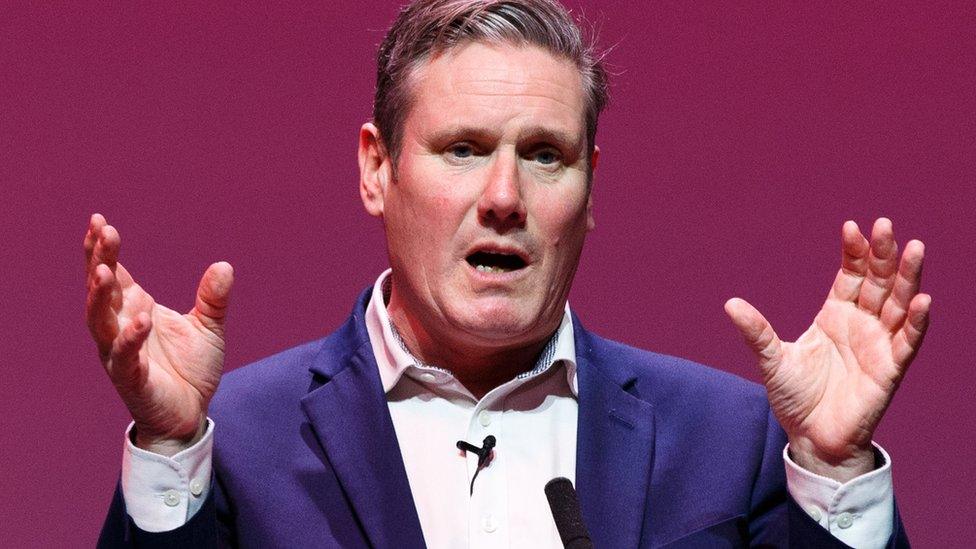
Labour leader Sir Keir Starmer says he would've sacked Priti Patel
The Labour leader Sir Keir Starmer said if he were prime minister, Ms Patel would have been sacked.
"It is one rule for Boris Johnson and his friends, another for everyone else," said Sir Keir.
"The prime minister has previously said he 'loathes bullying'.
"Yet when one of his own ministers is found to have bullied their staff he ignores the damning report sat on his desk and instead protects them."
How did we get to this point?
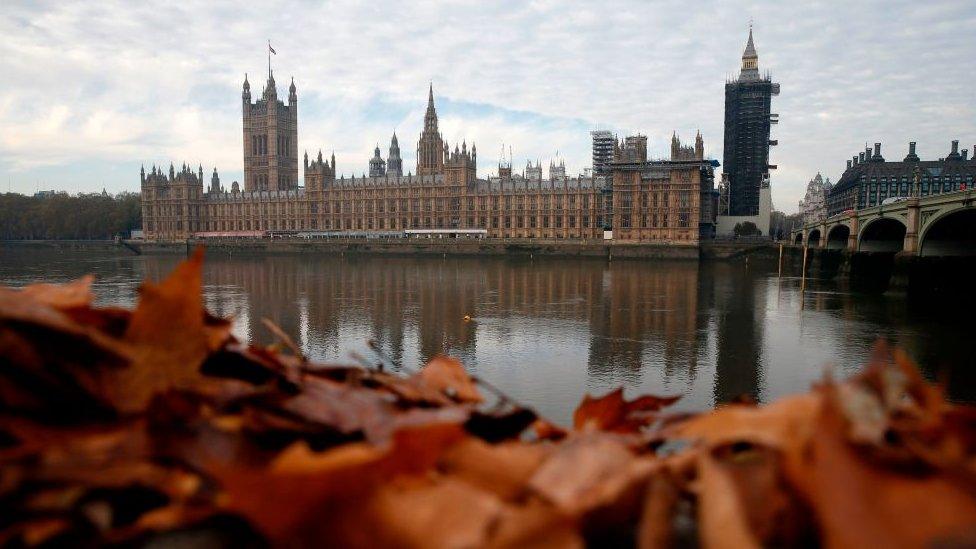
In February, the Home Office's most senior civil servant, Sir Philip Rutnam quit his job.
At the time, Sir Philip said he had received allegations that Priti Patel had been "shouting and swearing, belittling people, making unreasonable and repeated demands", and suggested that she had "created fear" among those she worked with.
He said that he had "encouraged" the home secretary "to change her behaviour".
Three years ago in 2017, Priti Patel was accused of breaching the ministerial code when she didn't declare meetings that she had with politicians in Israel.
Her actions meant she was forced to resign as international development secretary by former prime minister Theresa May.
What has Priti Patel said?
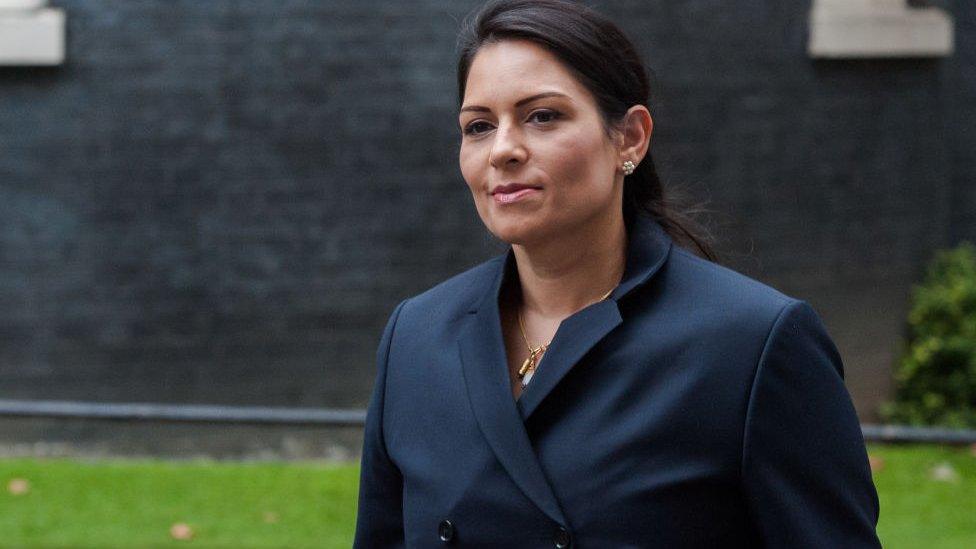
Following the prime minister's decision, Priti Patel thanked Mr Johnson for his support and said she was sorry "that my behaviour in the past has upset people".
"It has never been my intention to cause upset to anyone. I am very grateful for the hard work of thousands of civil servants who help to deliver the government's agenda.
"I care deeply about delivering on the commitments we have made to the people of this country and I acknowledge that I am direct and have at times got frustrated."
Colleagues within the government who work with Priti Patel have described her as a "demanding" boss but not a bully.
- Published6 November 2023

- Published17 November 2020
